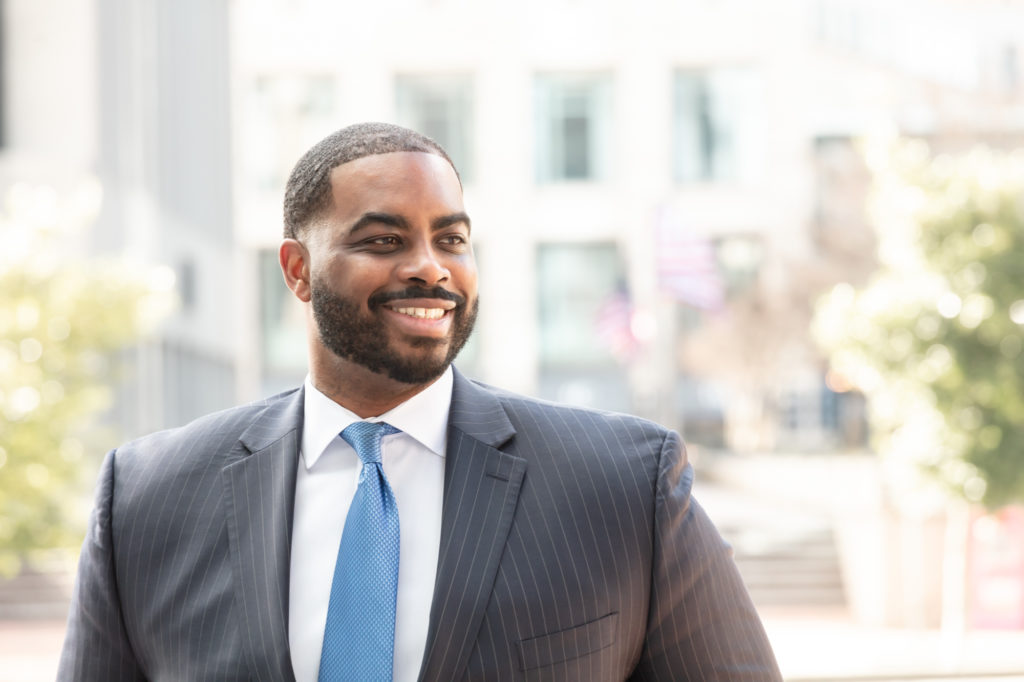Iraq veteran, CEO and founder of Seven Principles Chas Sampson, a man of principle who empowers veterans to maximize their benefits and improve their lives. CEO of Seven Principles Chas Sampson has dedicated his life to helping veterans, and he’s succeeding beyond his wildest dreams.
“I got a call from a veteran yesterday out of Georgia,” Chas Sampson said. “He said, ‘I feel like a million pounds has lifted off my shoulders.’ That’s the best part of my job. I love it when veterans say, ‘I’ve been trying for years and even decades with no results. I came to you, and within 90 days, I have results.” Chas Sampson started Seven Principles with one goal: to advocate for and improve the lives of veterans in the aspects of VA disability claims, transitioning to civilian life, and entrepreneurship. It’s rare for an experienced former VA Rater to offer these services to veterans, but Chas Sampson is a rare man.
Seven Principles is a team of veterans, former VA Raters, medical doctors, psychologists, attorneys, and corporate executives who believe every veteran should have access to adequate and efficient services that yield results. Sampson named the company after the seven Army values of loyalty, duty, respect, selfless service, honor, integrity, and personal courage. “These are the seven principles that we’re taught from day one in the Army,” he said. “Those are guiding principles of how we make our decisions, how we take care of Veterans, and how we take care of everybody that comes to our firm.”
The idea of starting Seven Principles occurred to Sampson when lawyers and politicians began asking him for advice. “They wanted to know how to reach more veterans, about the VA claims process, and the benefits that they’re entitled to receive,” he explained. “I was surprised to learn that severely underrated veterans were such a large demographic.” What began as a part-time volunteer service for veterans quickly exploded into a full-time business. “I was doing it for free for the first nine months, managing about 250 cases,” he said. “That’s when I learned that I needed to start charging for my time because I didn’t have the bandwidth to do their cases and still work my federal job.”
His decision to leave his job with the government was not easy. “I’m a perfectionist. I wasn’t able to sustain my load in the federal government and honor these veterans who trusted me with their case files.” Chas Sampson made a valiant effort to juggle the two demanding jobs. “I was probably working 60 hours a week with the federal government and putting in another 30 hours into the VA claims, so I was pushing 80 to 90 hours a week. I’d go to bed at midnight and wake up again at six. I had a strict diet to keep up my stamina.”
Didn’t Chas Sampson take any time off for rest? “I would take one or two Saturdays per month and sleep for 24 hours, just to recharge my energy levels,” he answered. Sampson began to develop high blood pressure from the stress. “Being a good federal employee while also serving as a good steward for the veterans became overwhelming for me,” he said.
Leaving a well-paid, secure job with the government took a lot of courage, but Chas Sampson had one more reason for making this decision. “It was Christmas time, and I love being a dad. Many vets are like that; we love being in our kids’ lives. I told my daughter that I would spend time with her for Christmas. Once I realized that I couldn’t spend time with my kids, that pushed me over the edge.”
Chas Sampson made the difficult decision to resign. “But I made sure to give enough notice because my job was very specific and very detailed. I stayed to ensure a smooth transition. I still get emails from the Pentagon asking if I want to come back to the federal government, but at this point, I’m far too deep into the business.” That was seven years ago, and Seven Principles has been growing ever since with an impressive 98.2 percent success rate for their clients.
“I never want to let my veterans down or see them lose. We may have 30 people get results, but if we have two people who don’t, I’m not happy.” And the best part of the job? “It’s hearing these veterans tell us, ‘You took a load off my shoulders. You helped my family.” The veterans who come to Seven Principles now live the lives they deserve with increased benefits, some receiving double the money per month. “Before we intervened, they might have made $1,000 a month,” he explained. “After our work is done, they make $3,000 a month for the rest of their lives. I consider it a badge of honor to provide results to my clients,” he stated. “It is an honor for me to provide this service and help to change veterans’ lives for the better.”
